Two elite, secretive PR groups are meeting in June -- PR Seminar June 1-4 at a swanky Charlotte, N.C., resort, and PRSA chapter, district and section leaders in New York June 13-14.
About 200 corporate and agency PR executives and their spouses/companions will gather at the Ballantyne Hotel & Lodge in Charlotte for the 63rd annual Seminar whose speakers include Brian Moynihan, CEO of Bank of America, Gregory Page, executive chair, Cargill, and Bob Johnson, founder and chair, RLJ Cos., described by Wikipedia as “America’s first black billionaire.” He founded Black Entertainment TV, which he sold to Viacom in 2001.
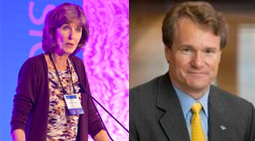 |
The Ballantyne, a “Luxury Collection Hotel,” offers guests “elegantly appointed rooms and suites and resort-style amenities such as a luxurious spa, salon, indoor pools, seasonal outdoor pool, tennis, fitness, and a championship PGA golf course.” Rooms range from $299 to $699 nightly.
Seminar registration is about $3,500 per member and about 150 will attend. Costs for room, travel/meals, golf and tennis are at least another $2,500 per couple or individual member, bringing total cost of the four days close to $1 million. Betty Hudson, XVP, communications, National Geographic Society, is 2014 program chair.
A 30-member committee, which includes about 20 from the Arthur W. Page Society, prepares the program. Assn. Mgmt. Services, Pasadena, Calif., handles the 501/c/3 (educational/charitable) corporation, the same status as Page. Net assets as of 12/31/12 were $786,163.
Although it has used the term “Seminar” to describe itself since 2007, its 990 tax return (EIN: 41-1838593) is for “Public Relations Seminar” and its statement of program services says it’s devoted to improving “professionalism and business conditions in the area of PR,” helps members to meet the “PR needs” of employers and clients, and “fosters the acquaintanceship of leading PR practitioners who are advancing enlightened PR and practice in the business sector.”
Working Press Barred
 |
All proceedings are off-the record and participants, including journalists (the few who may be invited as speakers) are sworn to silence. No texts are ever published by the group whose members profess high loyalty and cooperation with each other. No major news medium has ever mentioned the existence of Seminar although more than 25 editors and publishers of such media have attended over the years.
The Seminar website boasts of major national journalists speaking at past sessions including Lionel Barber, Financial Times; Maria Bartiromo, CNBC ; Tom Brokaw, NBC News; Dan Doctoroff, Bloomberg LP; Jeff Greenfield, PBS Yahoo! News, and Paul Steiger, The Wall Street Journal.
However, national journalists have mostly avoided the meeting in recent years following criticism that attending it and not reporting on it was unethical. That was voiced by Peter Sussman, a founder of the Ethics Committee of the Society of Professional Journalists.
Seminar Speakers Listed
“Conspiracy Theories or Paranoia?” will be examined by George Noory, host of the late night talk show “Coast to Coast AM,” whose topics include the paranormal, time travel, UFOs, alien abductions and “strange occurrences.”
Other speakers include Bill Adair, founder and editor of Politifact, Pulitzer Prize-winning website of the Tampa Bay Times, and David Pogue of Yahoo! Tech, who was a New York Times columnist for 13 years until last October when he joined Yahoo!
Seminarians interact all year long “as an informal network for the exchange of ideas, fellowship, information and best practices,” says the website. It adds: “In fact, when fellow Seminarians contact each other, we make it a point to get back to each other within 24 hours. The relationships created among leaders within The Seminar truly last a lifetime. ”
PR Society Picks Up Check
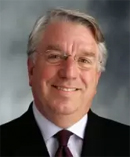 |
While the Seminarians and/or their companies pick up the checks for that meeting, the 134 invitees to the “Leadership Rally” of the PR Society have most or all of their expenses paid by the Society itself or their chapters, sections, or districts.
The June 13-14 (Fri./Sat.) meeting comes one day after the Silver Anvils evening and is timed to boost attendance at that event. The 110 chapter presidents, 14 section heads and 10 district heads each receives $550 from national to help defray expenses.
They are also treated to a Friday night dinner at a Class A restaurant plus two breakfasts and two lunches, raising total Society costs to at least $750 each. Staff time and rental of hotel facilities can boost the cost for the weekend to as high as $135K, John Colletti, previous CFO at the Society, had told a teleconference.
Spring Assembly Was Cancelled
The cost of such a meeting appears to be of no concern now but in 1986, when the Spring Assembly was permanently cancelled, the cost of the meeting was given as the chief reason for ditching it.
Dissidents said the real reason was punishment by the staff/leaders for proposing that Society h.q. be moved out of town. The board had sought such proposals because the midtown lease was up in April 1987 and seven chapters made extensive presentations, claiming huge savings could be made in office and employment costs.
Staff threatened to quit en masse if such a move took place. The site relocation committee said no move could be made from New York because replacing the entire staff would cost $200K in recruitment costs. Dissidents argued that the board did not come up with projected costs for staying in New York. Occupancy costs are currently about $800K annually or about $36 per sq. ft. for 22,000 sq. ft. Costs of the staff, which is almost 100% non-PR people, is about $5 million yearly Accounting costs, including staff and nearly $50,000 yearly to an outside CPA firm, are about $300,000 yearly.
Houston Led Mini-Revolt
The 450-member Houston chapter led a mini-revolt against national in 1985. Its board voted to withhold national dues until more information about the Society’s finances was disclosed. It also said board members had no business being in the Assembly since they are voting on their own proposals.
Twenty-five Houston members including the entire board sent a petition in August 1985 demanding that any relocation decision be made by the Assembly. The Spring Assembly had voted 126-20 to seek such a discussion. The national board, ignoring the Assembly, voted at its meeting August 16, 1985 to keep h.q. in New York.
Houston chapter president Margo Dimond of DoubleDimond PR accused the board of “railroading: the issue.” Member Wellington Osterloh said the board’s action, “without even waiting for discussion by the Assembly, is an outrage and unprofessional.”
The board not only stuck by its decision to keep h.q. in New York but permanently chopped the Assembly in half by cancelling the Spring meeting. The remaining one-day Assembly was reduced to a half day in 2013. A half day Assembly is scheduled for 2014.
To appease a faction in the Society that felt New Yorkers should have no more use of h.q. than other members, h.q. was moved from 845 Third ave. at 51st st. to 33 Irving pl. at 17th st. in 1987. It was moved downtown to 33 Maiden lane in 2004 for 13 years without either the knowledge or approval of the Assembly. The move was announced to the 2003 Assembly as a done deal
Board Ignored Authors’ Probe
The 1995 Assembly, by unanimous voice vote, formed “a task force of the Assembly to work with the authors, [whose works had been copied and sold by the Society] the executive committee of the Society, and with our lawyers to closely examine all issues claimed by the authors and report their findings back to this Assembly.” The motion was made by Lou Capozzi, current chair of the Society’s Foundation.
This was passed by a loud chorus of “ayes.” There were no “nays.”
Ignoring this directive, the 1996 board declared the matter closed. John Beardsley, 1995 president, told The Ragan Report that the Society “exercised its privilege of fair use and has not infringed on anyone’s copyright.” He appointed the “task force” whose members were Capozzi; Cheryl Procter-Rogers, Society president in 2006; Jerry Bryan, 1993-94 national board member, and counselor Patricia Trubow of Florence, Ky. Capozzi, Bryan and Trubow are Society Fellows. They concurred with the decision of Beardsley.
An abortive attempt was made to bring the matter to the 1996 Assembly, a move that was blocked until the last few minutes of the meeting. Prof. Nancy Wolfe of Elon College, Winston-Salem, asked for discussion of the authors’ issue. President Luis Morales said a motion to adjourn had been made and that took precedence. Morales noted it was 4:20 and the room had only been rented until 4 p.m. A motion to move the meeting to another room was made and resulted in shouts of “ayes” and “nays” that were about equal. Morales then asked for a standing vote although by that time some delegates were leaving and non-delegates were entering the voting area. It was a chaotic scene. Morales declared the meeting closed.
The staff and national board have continued their drive to reduce the power and influence of the Assembly. The only measure up for voting in 2013 was promoting COO Bill Murray to CEO. Despite this promotion, he suddenly resigned on March 7, 2014, effective June 1, catching the board by surprise. The search committee and specs for the new CEO have yet to be revealed.
Quinn, Yunis, Adair at Seminar
Other speakers at this year’s Seminar include Kenneth Quinn, president, World Food Prize Foundation and former ambassador to Cambodia, and Muhammad Yunus, 2006 winner of the Nobel Peace Prize.
--“Socially Conscious Entrepreneurialism will be discussed by Seth Goldman, CEO, Honest Tea.
--“On Leadership” is the topic of Cathy Lanier, chief of police, Washington, D.C.
--“What’s Killing the Bees?” will be considered by Maria Spivak, Ph.D., professor in entomology, University of Minnesota.
--“Harnessing Big Data” will be accessed by Jer Thorp, co-founder, Office for Creative Research.
Corporate PR Pulls in Horns
 |
Corporate PR practice is worlds different today from what it was until the late 1980s. In New York, virtually every industry, from airlines, autos, banks, chemicals, food/beverages to telephones and telecommunications, plus the trade and professional associations, had PR people who reached out to the media via lunches, visits to media offices, holiday and other parties, golf tournaments, etc. New York had 24 PR dinner and luncheon discussion groups, almost all of which have disappeared. Almost all PR firms and ad agencies had full time staff dedicated to building relations with the media. None have such posts now.
Variety editorial director Peter Bart, based in Los Angeles, noticing the same sea change in corporate press practices, wrote April 22 that “a new generation of leaders high on discipline and low on transparency, has quietly assumed the power positions in corporate Hollywood.”
Current practice, he wrote, is to “maintain an aura of corporate calm whatever the circumstances, avoid all public appearances unless they’re carefully scripted and stay aloof from the press.” These rules are being “rigorously enforced by corporate PR functionaries,” he wrote. “PR gurus” steer interviews to “friends,” he added.
Bart had a similar column April 9, 2011, headlined: “For publicists, evasion overrules promotion; celebs skip the spotlight and promo gigs.” PR people who were once a “colorful fraternity promoting the fortunes of their famous clients” have become “publicists locked in their bunkers doing damage control.” Clients want “protection, not promotion,” he wrote.


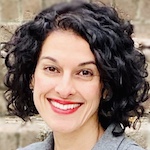 Sherrie Mazur will join the Arthur M. Blank Family Foundation as managing director, of communications on Feb. 14.
Sherrie Mazur will join the Arthur M. Blank Family Foundation as managing director, of communications on Feb. 14.  Independent Diplomat, the nonprofit that promotes democracy by organizing opposition movements and activists, has trained its sights on Venezuela.
Independent Diplomat, the nonprofit that promotes democracy by organizing opposition movements and activists, has trained its sights on Venezuela.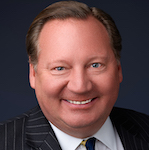 Robert Tappan has joined the International BioMetrics + Identity Assoc., the trade group for the identity technology industry.
Robert Tappan has joined the International BioMetrics + Identity Assoc., the trade group for the identity technology industry.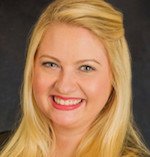 Tiffany Haverly, who was at Finsbury Glover Hering, has joined the Internet Association as director of communications.
Tiffany Haverly, who was at Finsbury Glover Hering, has joined the Internet Association as director of communications.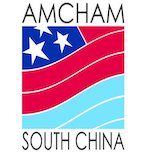 BGR Government Affairs represents the American Chamber of Commerce in South China as economic and political tensions between the two countries escalate.
BGR Government Affairs represents the American Chamber of Commerce in South China as economic and political tensions between the two countries escalate.


 Have a comment? Send it to
Have a comment? Send it to 
No comments have been submitted for this story yet.